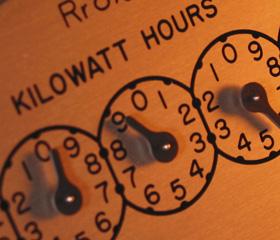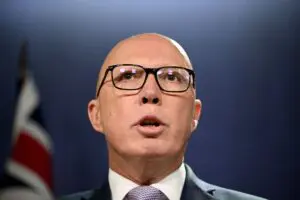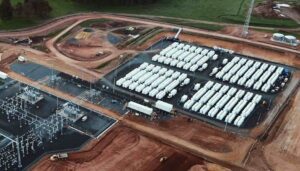Less than one week after the Prime Minister summoned the heads of Australia’s major electricity retailers to Canberra to explain bloated profit margins and questionable billing practices, a new Victorian report has shown the extent to which retailers have been gouging consumers, and has brought into question their entire existence in the energy supply chain.
The bi-partisan review – undertaken by former deputy premier of Victoria, John Thwaites, alongside Terry Mulder and Patricia Faulkner – was commissioned with the overarching task of investigating whether the state’s retail energy market, electricity and gas, was delivering outcomes that were in consumers’ interests.
The resulting report, published on Sunday, answers that question with a resounding “no,” and confirms that the Australian energy market has now been successfully gamed by all of its major players: the wholesalers, the distributors, and the retailers.
In terms of the retailers, the report reveals a series of “market failures” that have resulted in charges that often make up the largest chunk of electricity bills for Victoria’s 2.4 million residential and 274,000 small business customers, and rank among the highest in the nation.

As you can see in the chart above, the research – in this case done by CME Carbon and Energy Markets – found that the average retail charge for a typical customer using around 4,000 kWh per year is now $423 before GST (or more than 10 cents per kWh); that is, around 30 per cent of the household bill.
(It is also worth noting in the chart the comparatively insignificant cost impact of both state and federal environmental measures.)
This means that for most households in the research sample – 686 household electricity bills over the period of December 2016 to April 2017 – the retail charge was the single biggest component of the bill; far greater than the wholesale charge, and similar to the network charge.

“Comparison of the Victorian market with other national markets and international markets further emphasised that the prices Victorian consumers are paying for electricity are unusually high,” the report says.
“This was not the outcome that Victorian consumers anticipated from the competitive market and the review has concluded there is evidence of market failure that has led to this result.”
The failures, according to the report, can be divided into three main categories: the added cost of competition, that has been passed on to consumers; a noncompetitive market, dominated by Tier 1 gen-tailers; and “opaque and varying” billing practices that make it virtually impossible for customers to get the best price for their energy needs.
To help remedy this, the report has made 11 recommendations (below) to the state Labor government, including the abolition of standing retail offers; the simplification of billing and marketing information; and ready consumer access to smart meter data, to encourage energy efficiency and smart energy management.
But one of the most surprising outcomes of the review is its advice to the government to, effectively, end the competitive retail market as we know it, in recognition of the fact that its role seems to be increasingly restricted to confusing consumers with complex bills and driving up prices.
To this end, the review panel makes two key recommendations: to abolish standing offer (and discounting) based competition, and replace it with a regulated Basic Service Offer, with no allowance for retailer marketing activities; and to force retailers to compete on a standardised price format, such as a dollar-per-day service charge and $/kWh usage, rather than percentage discounts.
This will no doubt send a chill through the energy retail sector, with utilities analysts at Morgan Stanley noting that the measure – if enacted – could threaten the profit margins of big three gen-tailers, AGL, Origin Energy and EnergyAustralia; the vertically integrated businesses that have dominated the market since competition was first introduced in 2002.
“As a rough scenario, if 200,000 accounts for either company reverted to (Basic Service Offers), with retailer charges at around 50 per cent of current margins as estimated by the Review, this could be a $A50 million EBITDA headwind” for AGL and Origin, Morgan Stanley said in an update on Monday.
But Morgan Stanley also notes that, in the longer term, a regulated market could wind up being a positive for incumbents, “by reducing competition from new entrant retailers.”
This would not necessarily be a good thing for Australia’s low-carbon energy transformation. As the Thwaites Report notes, competition from dynamic new entrants was precisely what market deregulation was intended to encourage, leading to innovation and better value for consumers in the long term.
The trouble is, things clearly haven’t panned out this way for Victoria.
“With customers unable to exit the market, and with likely higher costs for new entrants and increasing costs related to competition, consumers are still waiting for the benefits to accrue eight years after price deregulation,” the report says.
Instead, according to the CME analysis, the three Tier 1 retailers are charging among the highest prices in the Victorian market – a practice that, rather than driving prices down, has had the effect of increasing them to an equilibrium where Tier 2 and Tier 3 retailers, with higher operating costs, are offering the lowest prices to consumers; an outcome that is neither sustainable for consumers, nor for new market players.
“These lower prices appear to do little to constrain the prices that Tier 1 retailers are charging many customers,” the report says. “Despite their likely lower operating costs, Tier 1 retailers continue to charge a premium.”
Of course, much needs to happen between now and the end of the year – the date set by the Victorian government to act on the report – before any such market regulation scenario might play out.
As Morgans Stanley notes, the Andrews government will most likely want to see the ACCC’s preliminary report into electricity markets, which is due on September 27, and to watch the progress of federal government talks with retail companies, with the next CEO meeting scheduled for this Friday.
But the leader of the Review, John Thwaites, says the idea is not to take the competition out of the market, but instead to remove the “marketing middle man,” which requires retailers to spend spend money on marketing their offers, which is then passed on to consumers, without being offset by other benefits.
“The key recommendation is for a base, no frills offer, regulated by the Essential Services Commission, that does not include an amount for customer acquisition and retention and marketing costs,” Thwaites told RenewEconomy on Monday.
“These are the costs that have gone through the roof,” he said. “If you compare the regulated cost in the ACT, of around $120, with what people in Victoria are paying in the open market, you can see that there is a considerable saving to be made.
“Retailers can make any other offers they wish – provide extra services or innovative products – but most people just want to have electricity to make their fridge and TV work. They don’t want to go through the incredibly complex calculations required to get the best deal for electricity,” Thwaites said.
“Others say we shouldn’t intervene, it will improve and customers will get a better outcome,” he added. “But Victoria has had a deregulated market for the longest in the country.
“We believe the whole country needs to take notice of (what has happened in the Victorian market), and some states that are only just starting to deregulate their retail sector should reconsider their postition,” he said.
“We want to give the ESC much stronger powers to investigate margins, to control price offers, and to monitor and report on competition and the efficiency of the market; power to require information on costs and margins.”
Other recommendations of note in the report are that retail offers be fixed for a period, so that customers have some confidence that when they enter an offer, underlying prices won’t change immediately or in the short term.
And there is also a proposal for the government to investigate setting a bulk-buy scheme on behalf of the state’s most vulnerable customers, where power purchasing is done on behalf of concession card holders, ensuring they get the best possible outcome.











